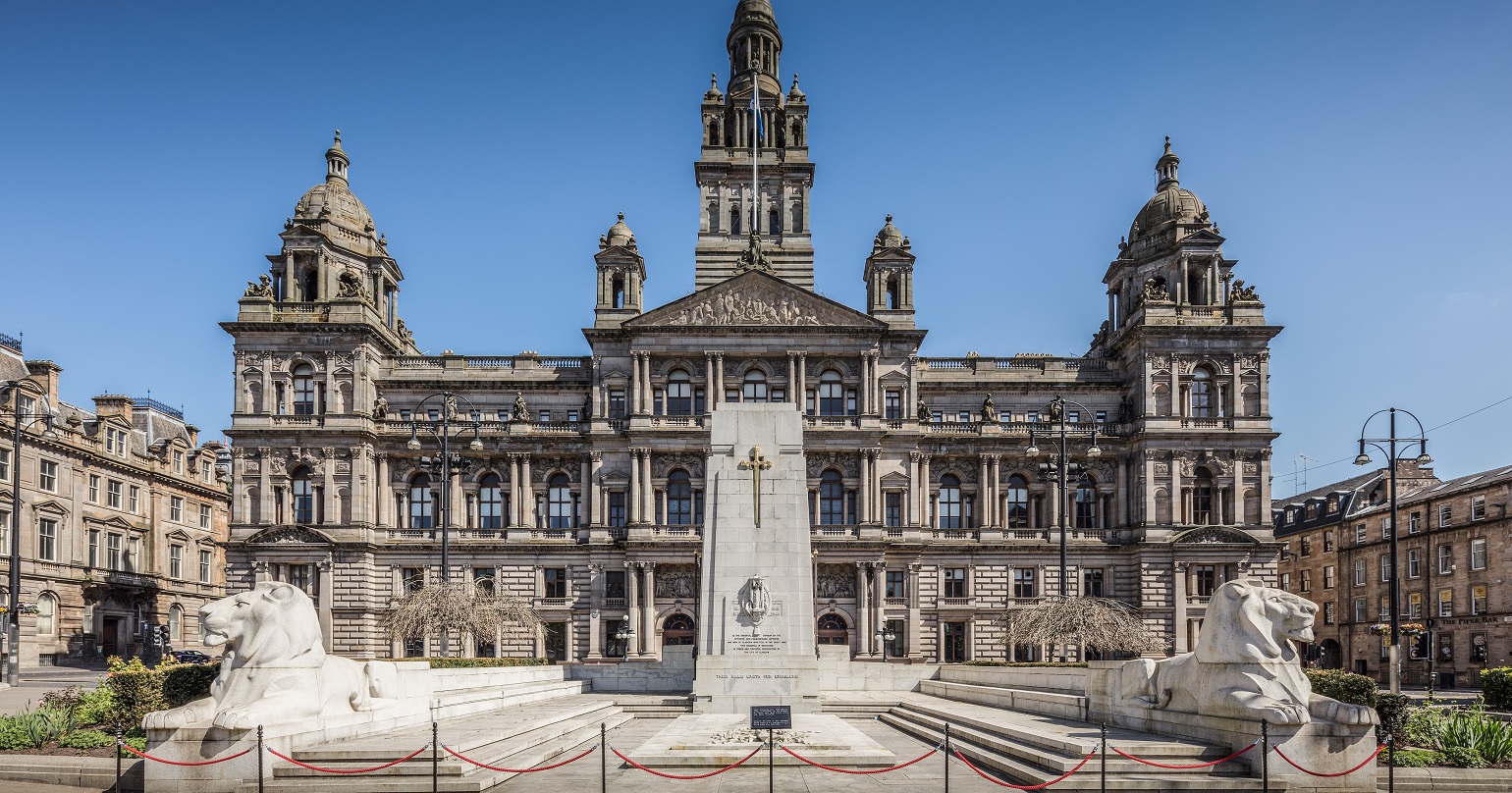The crisis facing Glasgow City Council can only be resolved by allowing councils to raise funds locally

What is responsibility without power? It is not news by now that Glasgow City Council’s budget is in a desperate state. While the Scottish Government might have agreed an extra £1bn from income tax reform, very little of that will reach the local authorities. Here’s the story, as much of it as is not confidential:
- Following the Scottish Government’s financial settlement for the coming year, Glasgow’s budget hole was £119m. This was announced officially so that leaks wouldn’t frighten people.
- Council officers were asked to propose 10% “savings” from their departments. This comprised some income increases and reorganisations, mostly service and job cuts.
- Leaks from various sources frightened Holyrood into declaring that health and social care must be off the table for budget purposes.
- That left £69m to find. The Health & Social Care Partnership would have to go themselves cap in hand to fund their £50m shortfall.
- The Scottish Government announced their budget, hailed by Green ministers as the Greenest budget ever, with £1bn for public services.
- Various settlements from out of that “new” £1bn amount to £7m for Glasgow, leaving us £61.3m to find.
Where can we find that? We can increase fees and charges, which gets our gap to about £30m. Cuts to services over the last decade or more have pared our options to the bone, and the alternatives that are offered to us by council officers amount to job cuts. Or we can increase council tax. To close the budget gap without job losses, we would need to raise council tax to almost 35%.
But Glasgow doesn’t take a lot from council tax, over 80% of residents are in Band D or lower. The rich houses are in other local authority areas. We can’t increase business rates, that power is with Holyrood. We can’t raise money by investments or from the common good, the finance payments would add to our budget gap before we ever see a return, and we’ve raised all we can from that already, for example in funding the equal pay settlement. And we’re not allowed to run a deficit budget, we don’t have that power. Our borrowing and capitalisation powers are sharply limited.
Why are we in this position? Financial interests don’t believe that they should pay tax, and Thatcherites in the Scottish Government pay more attention to them than they do to the needs of their actual constituents. The British economy is crashing because rich people and corporations are “avoiding” taxes. “Evading” is a legal term and a criminal offence; what do you call it when you persuade the ministers not to tax you?
The GDP might be looking alright, but that’s because it’s falsely inflated by the extreme profit-taking of the oil and power monopolies and other big corporations who refuse to pay taxes. Money isn’t circulating, it’s pouring into a hole in a tax haven in the Caribbean. The high streets are shuttered.
The story that we have to “tighten our belts” in a tough situation is a lie. It’s a myth put across by Margaret Thatcher in the 70s. An economy is not a household, it’s not even a corporation. In its simplest terms, your spending is my income and vice versa. If you stop spending I stop earning. If you lose your job I lose mine. If the council cuts jobs then the whole economy suffers. Conversely, if the council and the public sector fund jobs then small businesses can prosper on that foundation.
People providing goods and services to one another – that’s the basis of a healthy economy. Public services matter as part of that economy. Profit-taking should not be part of a health service, nor should it be part of other monopolies like energy, water, and public transport. And public services have to be paid for.
A fair tax system will reduce the unjust income of the corporations and high earners. That is why they have such strong lobbies in national government, to prevent that from happening. But like parasites who are killing the host, the private interests are crashing the economy by taking from it and not returning anything.
What can we do? To close the budget gap this week, we need an additional settlement from the Scottish Government. This must be for core services, not tied to political wish lists like preserving teacher numbers. It serves no good to keep teachers but close museums and swimming pools, park services and road maintenance.
We also need more fund raising powers for the local authorities. There are measures we can take in the short term, such as raising car parking fees, raising charges for profit-making festivals and the film industry, implementing congestion charges, raising tourist taxes, charging for public infrastructure such as electric vehicle charge points, etc.
But we also need more control over local taxes; the authority and competence to set non-domestic rates, local income taxes, and local spending priorities and not be saddled with blanket settlements that are one-size-doesn’t-fit-anyone. Council tax is a regressive tax; like extreme energy bills and running public transport for profit, it is putting the burden of paying for services on the backs of the people least able to afford it.
And we need higher intermediate and top band income tax, distributed to the local authorities. Tax rates are lower now than they were under Thatcher; the STUC proposed a package of income tax changes that would have raised £800m but they were ignored.
If we fund public service jobs, then the services will recover. Basic needs like bin collections, road repairs, teachers, and nurses will be supported, but more than that. If more people can afford to spend, then the high streets and small businesses will have customers once again and more people will have jobs, and the spiral will go round again, upwards rather than down the plughole.
Elaine Gallagher is a Green Party Councillor in Glasgow
PS. We hope you enjoyed this article. Bright Green has got big plans for the future to publish many more articles like this. You can help make that happen. Please donate to Bright Green now donate to Bright Green now.
Image credit: Michael D Beckwith – Creative Commons



Leave a Reply